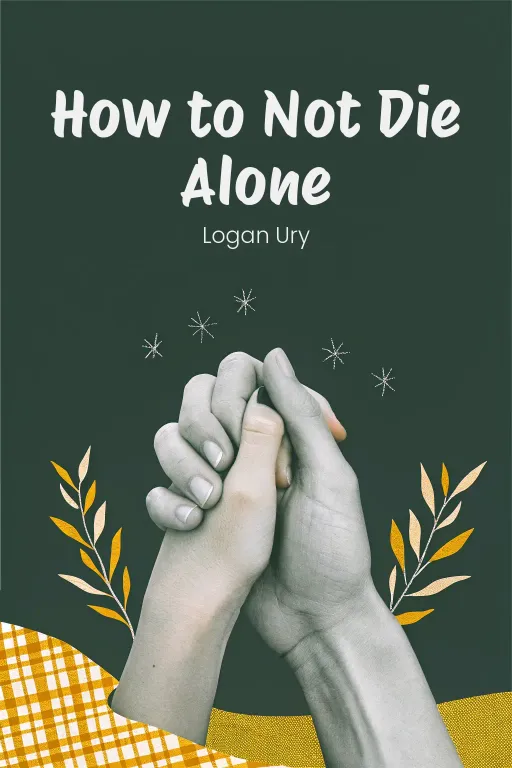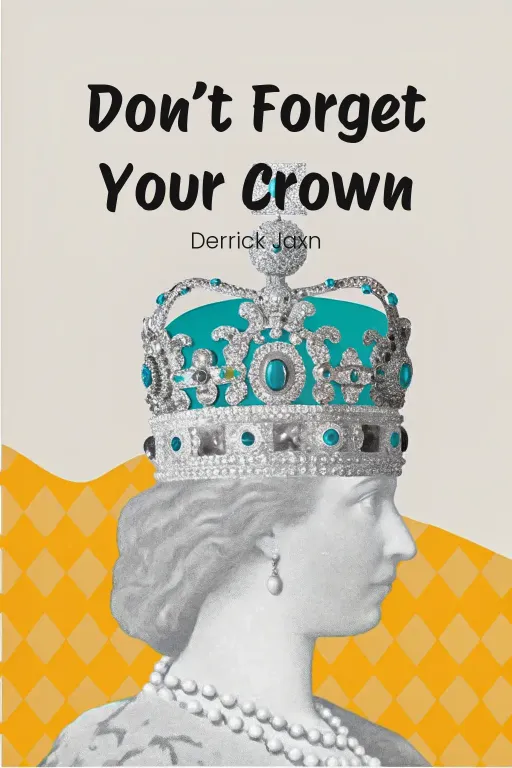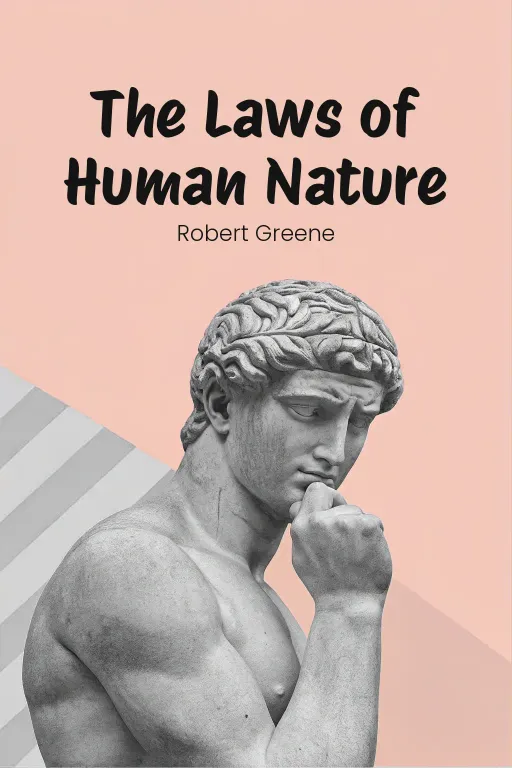
Love Starts Within: Boundaries & Self-Worth
Podcast by Beta You with Alex and Michelle
Introduction
Part 1
Alex: Hey everyone, and welcome! Today, we're diving deep into a book that's been making waves in the relationship world: “Don't Forget Your Crown” by Derrick Jaxn. Now, we're not talking about fairytale, Hollywood love here. Forget the grand gestures that supposedly fix everything. This is about a different kind of love, the kind that begins with you. We're talking about self-love, the bedrock of all healthy relationships. Michelle: Okay, Alex, so putting yourself first? That sounds a little... selfish, doesn't it? Or is this more of an "oxygen mask on yourself before assisting others" situation? Alex: Spot on, Michelle. Jaxn makes the case that self-love is like your emotional armor. It protects you from repeating toxic patterns and, more importantly, creates space for the healthy, fulfilling relationships you deserve. He doesn't hold back on challenging some widespread, and frankly, damaging beliefs, like "all men cheat" or that "unconditional love" means accepting absolutely anything. Michelle: Right, so it sounds like he's not afraid to ruffle some feathers. What's his approach then? What’s the playbook look like? Alex: Great question! Today, we're going to unpack three major ideas from the book. First, we'll see how self-love actually transforms not only your relationship with yourself but also what you're willing to accept from others. Then, we'll take apart his blueprint for building connections that are rooted in respect and genuine emotional maturity. Lastly, we'll zoom out a bit and see how these individual changes can ripple outwards, reshaping how we view modern love and relationships as a whole. Michelle: So, a little bit of self-discovery, a relationship detox, and, what, a dash of societal reform thrown in for good measure? Alright, buckle up. This sounds like quite the journey. Alex: Absolutely! Let's get started.
The Foundation of Self-Love
Part 2
Alex: So, picking up where we left off, let’s really dive into this idea of self-love as the bedrock of everything. Derrick Jaxn paints such a vivid picture, doesn't he? Self-love as the root system for emotional well-being. Without those roots, you're unstable and easily toppled over by toxic relationships or the need for external validation. He even uses that metaphor of “pouring love into a broken cup.” if you're cracked, you know, no one can fill you enough to ever make you feel whole. Michelle: That broken cup image really resonates. So self-love isn’t just some abstract feel-good concept; it's structural, right? If you're not fundamentally secure, then all the love people pour into you just… leaks out. Okay, but how do you even begin “building those roots?" It's not like there's an instant fix for shattered self-worth. Alex: Absolutely, there's no magic button. Jaxn is very clear that it's a continuous practice, not some overnight revelation. One of the tools he really emphasizes is journaling. He argues that, putting things in writing not only forces you to confront your emotions but also helps you spot recurring patterns. You know, asking yourself questions like, why do I always end up in relationships where my needs are last? Journaling can really help you connect the dots, from how you were treated, to how you treat yourself, and ultimately, what you allow from others. Michelle: Right, I get that. Expressing your thoughts in words can really force accountability. But – playing devil's advocate here – what's to keep someone from journaling their heart out and still repeating the same relationship mistakes? I mean, the mind can be stubbornly stuck in its ways, can't it? Alex: That's where affirmations come in, Michelle. I think positive affirmations help to reprogram that inner voice. If you've spent years, even decades, believing your worth is defined by what others think, affirmations rewrite those narratives. It's all about flipping that negative self-talk. Instead of always thinking. "I'm not enough," you start saying, "I deserve love, respect, and kindness." And eventually, these affirmations aren't just words. They shape how you behave. Michelle: Essentially, you're brain hacking, Jedi-style? Sounds interesting, but I imagine it feels pretty corny at first. Alex: Oh, totally cheesy at first, no doubt. Jaxn acknowledges that. He says it feels awkward because you're disrupting a habit – like ending a toxic relationship or setting boundaries for the first time. And speaking of boundaries, that's another key element he stresses. He describes them as protective barriers, like a no-fly zone against mistreatment. Michelle: Yeah, boundaries are tough. People talk a big game about them, but the second someone in their life challenges them, they back down. What makes it so difficult to maintain boundaries if they're truly about self-love? Alex: Because boundaries don't just safeguard your emotional space; they test it!. When you enforce them, you're declaring, "This is what I need to feel safe and respected." But here's the catch – not everyone will respect those boundaries. You know, People used to your lack of boundaries will push back. Jaxn says standing firm when it's tough is the ultimate form of self-respect. Michelle: So, someone pushing back is essentially a test of your own self-belief. If you fail that test, you're basically telling yourself you don't deserve any better. Alex: Exactly. Jaxn shares this powerful example of Jasmine, who learned this lesson the hard way. She was raised with such a strong belief in unconditional love that she ended up tolerating mistreatment from her partners. Her self-worth became so intertwined with others' approval that she lost sight of who she was. Only through therapy and facing the root causes of her low self-esteem did she reclaim her sense of self and set boundaries that reflected her worth. Michelle: Okay, Jasmine's story rings a bell. It's a tragically common pattern – people bending over backward, trying to earn love from someone who is simply taking advantage. Now, how do you rebuild after being in a relationship like that? It's not just about emotional scars. You're essentially having to relearn how to interact with people. Alex: That's where a multi-faceted approach is key. Jaxn says you have to start by confronting the narratives you've internalized about love – like the idea that love requires sacrificing yourself to the point of neglecting your own needs. Therapy was transformative for Jasmine because it helped her understand how her upbringing had shaped those beliefs. She then rewired her habits by establishing and maintaining boundaries, even when it meant saying "no" to people who disrespected them. Over time, these small victories built on each other, solidifying her self-love. Michelle: Got it, build incrementally – therapy, affirmations, journaling, whatever works. But let's shift gears a bit. Jaxn also argues that unconditional love – the kind romantic comedies always promote – can actually be harmful. That's a pretty provocative statement. What's his reasoning there? Alex: Oh, he really goes there. Jaxn contends that unconditional love, as it's typically portrayed, often leads to blurred boundaries and zero accountability. He clarifies that love isn't about accepting everything your partner does, especially if it's hurtful or disrespectful. A healthy love, he says, is “conditional” in the sense that it’s build on conditions like respect, effort, and emotional stability that fosters mutual growth and trust. Michelle: Ah, so love should come with its own terms and conditions… Kinda like Apple's user agreements, but far more relevant. Alex: Exactly! It's not about being cold or transactional; it's about valuing your emotional well-being. Jaxn's analogy of boundaries as fire extinguishers is spot on – they don't extinguish love, but they protect you when thing get out of control. Michelle: I'm sold. Conditional love actually sounds like a better love. But the million-dollar question is – if someone is waking up to this later in life, is it too late to build a foundation of self-love? Alex: Never too late. Self-love is a journey that lasts a lifetime. Whether you're just escaping a toxic relationship or finally recognizing your self-worth after years of neglect, that foundation can always be rebuilt. It requires time and consistent effort, but it impacts all facets of your life, not just your romantic relationships. Michelle: Okay, my last thought: do you think self-love becomes easier with practice, or is it something you always have to actively cultivate? Alex: A little bit of both, I think. It becomes easier in that you starting to trust yourself more .You know your worth, and you’re better at setting boundaries. But life will always present challenges, so self-love remains an active practice. It’s like exercise – no single workout makes you permanently fit, you know? It’s the consistency that keeps you strong. Michelle: Got it. So self-love isn’t a one-time fix; it’s the gym membership you actually use. Fine. Let’s dig deeper into this idea of “retraining the heart.” There’s a lot to unpack here.
Navigating Relationship Dynamics
Part 3
Alex: So, building on what we've discussed, let's explore how self-love actually plays out in relationships. It's not just about finding the right person, is it? It's about what you bring to the relationship yourself. This section is all about how individual self-love impacts our partnerships, offering practical ways to build strong, healthy connections. Michelle: Okay, so we're moving from theory to practice, right? Stepping out of the self-love bubble and into the real-world messiness of relationships. Because, let's be honest, relationships aren't some fairy tale; they take work. So, Alex, what practical advice does Jaxn offer here? Alex: Right. Well, Jaxn's core idea is this: if you want less drama in your relationships, you need deeper communication and mutual understanding. And the key to that is open communication. It’s not enough to just say what’s on your mind; you also have to actively listen, tune into your partner's feelings, acknowledge them, and respond thoughtfully. I know it sounds simple, but it's the foundation for any strong relationship. Michelle: Okay, “active listening”— that's thrown around a lot. What does that actually look like? Between our phones and social media, everyone thinks they're a multi-tasker. How do you know you're really listening and not just, you know, nodding along while thinking about what to have for dinner? Alex: Exactly! Active listening means being fully present in the moment. Phone down, eye contact – that's a start, sure. But it's more about reflecting back what your partner is saying to make sure you understand it correctly. You don’t just get defensive or dismissive. Like, if your partner shares something vulnerable, like a past disappointment, instead of just saying, "Oh well, that was then," you acknowledge it. You could say, "That must have been really tough. I understand why you might be a bit cautious now." You’re creating emotional safety. Michelle: Got it. Active listening is about making your partner feel seen and understood. But what happens when someone's just emotionally dumping on you? You’re thinking, "I’m not a therapist!” How do you balance being supportive without becoming codependent? Alex: That's where recognizing those emotional needs and setting boundaries comes in. Jaxn emphasizes that you should meet your partner's emotional needs, but you also gotta be clear about your own limits. If someone's venting starts to feel like emotional dumping, it's okay to gently redirect or set boundaries. For example, you could validate their feelings but suggest they process them later on their own or with a professional. It's about being supportive without draining your own emotional reserves. Michelle: Okay, and this ties into proactive strategies, right? Like those weekly relationship check-ins Jaxn is a fan of. Is that one of those things that people commit to for a month and then ditch when things are going smoothly? Alex: That’s definitely a risk. But if you keep those check-ins consistent, they're incredibly valuable for building emotional intelligence. It's like scheduling preventative maintenance for your relationship. Each week, you sit down – distraction-free – and talk about three things: what’s going well, what's challenging, and how you can support each other better. Jaxn says it might feel formal, but it stops resentment from building up unnoticed. Michelle: Okay, I see the value in that. A structured way to address issues before they explode. But societal narratives play a role too. What about this topic: society's messed-up ideas about love? Because I think people bring so much baggage into relationships that makes everything harder. Alex: Totally. Societal myths really are relationship killers, and Jaxn is pretty direct about it. One of the biggest is the "every man cheats" myth. It's so common that it lowers expectations. And for women - or anyone dealing with infidelity - it's worse because they start to see betrayal as normal. It undermines accountability and breeds cynicism. Michelle: So, what's his solution to that myth? That's a deeply ingrained idea, basically folklore at this point. Alex: Jaxn reframes it by focusing on emotional accountability and availability. He says infidelity isn't about “biology” or “instinct”; it's about choices. Men – and women – can choose loyalty, emotional openness, and respect. By holding partners accountable, you change the dynamics entirely. Cheating becomes a matter of personal maturity – or lack thereof – rather than destiny. Michelle: Makes sense. Let's bring this back to reality for a moment. Let’s say someone comes into a relationship already hurt by betrayal, like the story of Tasha and Michelleus. How do rebuild trust in that kind of situation? Alex: Rebuilding trust requires responsiveness and consistency. In Tasha and Michelleus's story, Michelleus knew about Tasha's trust issues from past hurt, so he deliberately took steps to reassure her. He didn’t get defensive; instead, he communicated clearly and frequently about his intentions. It’s all about patience – showing through actions, not just words, that the relationship is a safe space. Michelle: So, Michelleus couldn't just throw up his hands and say,"That’s your “baggage”"? He actually stepped up. Basically, what Jaxn's saying is - especially to men - develop some emotional intelligence. Alex: Exactly! Emotional availability is what changes relationships. And Jaxn also argues that it is also ties to how we challenge societal norms. For example, when we reject the idea that conditional love is somehow more "real,” we free ourselves to establish boundaries that foster healthier dynamics. Michelle: Alright, so society needs a major relationship makeover. Got it. I like how he takes these complex ideas – like accountability and boundaries – and makes them actionable. Any final thoughts before we move on? Alex: This whole thing boils down to one idea: love is an action,. It's not just chemistry or grand gestures. It's about what you do every day – the choices you make to respect, uplift, and understand each other. Jaxn calls it "choosing love," and that's a game-changer.
Societal and Personal Growth
Part 4
Alex: Exactly. And you know, that's how these dynamics extend outwards, impacting personal and societal growth. Jaxn's message isn't just about individual relationships, but it's about challenging societal norms and fostering cultural evolution, wouldn't you say? Michelle: Right, exactly, so we're not just talking about couples navigating their issues, but the outdated norms constantly pressuring them. It's like zooming out and connecting the personal to the collective. Is there an overall theme? Alex: Well, the overarching theme is really that personal growth isn't isolated. When people challenge beliefs and practice healthier relationships, they contribute to societal change. For example, when someone rejects harmful myths, that marriage equals success, they disrupt the system that perpetuates these ideas, if you know what I mean. Michelle: Got it. Okay, so let's dive into the norms that Jaxn critiques. Do you think marriage-as-the-endgame is at the top of his list? Alex: Definitely. Jaxn really deconstructs the idea of marriage as the ultimate goal. Historically, marriage meant economic survival, family legacy, and moral virtue, without considering emotional fulfillment. Even today, many people are still conditioned to think this way. They aim for marriage without asking if their relationship is healthy or sustainable. Michelle: It's a leftover, isn't it? We've collectively said that you've won if you grab the ring and stick it out. But Jaxn's flipping that: it's not about the concept of marriage, but about how we actually frame it. Right? Alex: Precisely! He reframes marriage from a transactional milestone to a dynamic partnership. It's not just saying, "We did it!" Instead, it's about two people growing together, as a team. He really emphasizes that marriage thrives when partners focus on self-improvement and mutual respect. Michelle: Makes sense. It's less "we're locked in" and more "we're checking in." But why do people buy into these roles? What's the root of it? Alex: So much of it stems from cultural and generational conditioning. Ideas about relationships and success are passed down in families, reinforced by media, and upheld as societal norms. Most movies end with the grand proposal, completely skipping the work and compromises that follow. It puts all the emphasis on "getting there" and nothing on "staying there, healthily". Michelle: And what about gender? I mean, women are especially fed the idea that being chosen validates their worth. Is that the “Pick-Me Mentality” we're talking about? Alex: Absolutely. Jaxn sees the “Pick-Me Mentality” as women feeling pressured to suppress their authenticity to earn a partner. This mindset is not only harmful, I mean, it's exhausting. Right? It forces women to prioritize being likable over being true to themselves, leading to imbalanced, unfulfilling relationships. Michelle: And we saw this in Jasmine's story—she was so focused on expectations that she lost herself. What's the societal takeaway? How can we move beyond this? Alex: Well, the solution is self-acceptance and rejecting those narratives. Jaxn wants individuals to redefine their worth independently of societal validation. When people embrace their identity and set boundaries that honor their needs, they challenge outdated norms. These choices create cultural momentum towards more equitable relationship dynamics. Michelle: It's a domino effect then, right? When one person's boundaries challenge their partner's expectations, it might influence others to rethink their assumptions. This isn't just about fixing individual relationships, but it's about shifting culture. Alex: Yes, and it also applies to the digital age. Social media inflates superficiality and competition, adding challenges, especially around the difference between public performance and private connection. Michelle: Yeah, that whole "relationship as a spectacle" trend is baffling. The only way your love is real if it gets a ton of likes. So, how does Jaxn critique this? Alex: Jaxn says public performances are a double-edged sword. On one hand, they can be validating. On the other, they pressure couples to prioritize appearances over substance. When relationships are more about external validation than internal connection, they lose resilience. Michelle: And it's not just social media. Online dating thrives on superficial assessments. How can anyone build something real when they're navigating a relationship fast-food menu of sorts? Alex: That's why Jaxn stresses intentionality over convenience. Modern dating requires people to be clear about their values and boundaries upfront. Instead of superficial connections, he encourages asking questions that reveal emotional compatibility and shared goals. Michelle: So, instead of a late-night "Wyd?", you're asking, "What are your thoughts on emotional accountability?" Not exactly cute, but productive, right? Alex: Precisely, but beyond that, Jaxn encourages couples to challenge performance pressure by setting boundaries around their private lives. For example, keeping milestones off social media can protect the relationship. Michelle: That's huge. It's not just about setting boundaries with each other, but with the world. When you focus inward, it forces you to invest in the relationship itself instead of the optics. Alex: Exactly. And the takeaway connects back to societal growth. By critiquing relationship norms and adapting to modern challenges, individuals model healthier dynamics. This ripple effect can reshape collective attitudes and pave the way for a culture that values authenticity and emotional intelligence. Michelle: So, it's about aligning the personal with the societal. When enough people reject outdated scripts and opt for intentional, respectful relationships, we're not just evolving individually, we're evolving as a society.
Conclusion
Part 5
Alex: So, to bring it all together, Derrick Jaxn’s “Don’t Forget Your Crown” really drives home the point that everything – healthy relationships, resilience, personal growth – it all stems from self-love. It's much more than just a trendy term; it's truly the bedrock for how we navigate relationships, establish boundaries, and even challenge societal expectations. Self-love shows us we don't have to accept less than we deserve. Real love is built on respect, effort, and growing together. Michelle: Right. So the key takeaway is that love – whether it's for yourself or someone else – it’s not just some fleeting emotion. It's an active choice. It’s about making decisions to value yourself, setting standards that protect your well-being, and holding yourself accountable along the way. Alex: Precisely! And, you know, choosing yourself doesn't mean you're shutting the door on love. It means creating the space for the “right” kind of love, the love that truly values and lifts you up. So, to all you crown-holders out there, here's a challenge: really think about your boundaries, how you talk to yourself, and the ideas you've absorbed about love. Are these things helping you grow, or are they holding you back? Michelle: Because, ultimately, your crown? It's non-negotiable. It's yours, and it's your responsibility to keep it shining and secure. So, never forget it. Ever.









